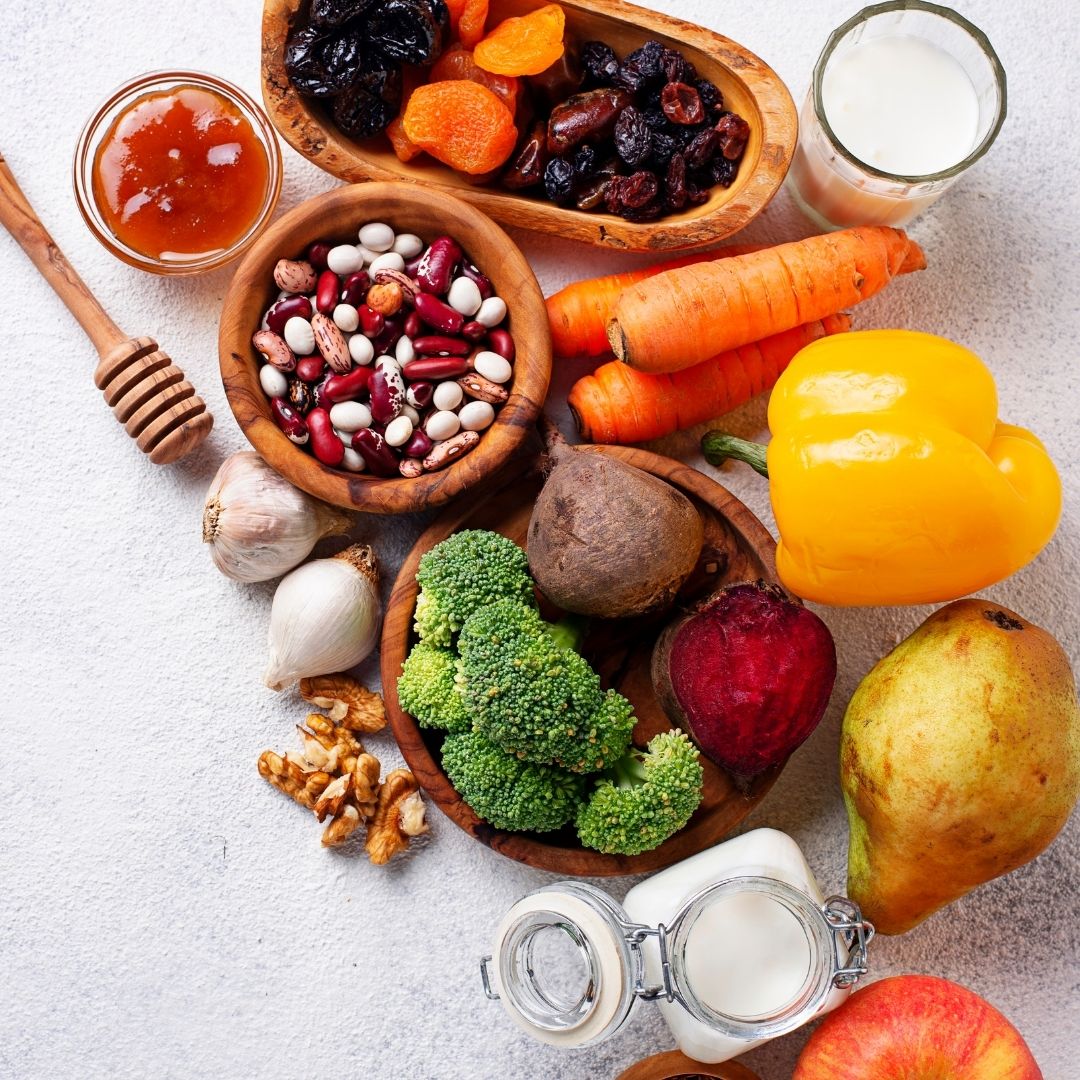
All About the Menopause, From a Menopause Specialist
To celebrate World Menopause Day, we were joined by Dr. Shahzadi Harper, otherwise known as The Menopause doctor. Dr. Harper specialises in women’s health and the menopause, and focuses daily on increasing awareness of the management of this stage in a woman's life.
Our nutritionist Georgine Leung hosted a Live on our Instagram with Dr. Harper, to delve deeper into the topic of menopause, and exploring the ways in which nutrition can play a key role in the perimenopausal symptoms one may experience.
Watch the full Instagram live here.
- G: Dr Harper, please describe menopause to our viewers - what happens to the body during this time?
Menopause is a very natural stage in every woman’s life, and it is when the period has stopped occurring for 12 months.
The ovaries—our reproductive organs—produce the hormones oestrogen and progesterone that kick into action during puberty, leading into our monthly cycle. When we enter our 40’s, our period can start to become irregular, until finally, our period ends. The average age of menopause in the UK is 51. However this age can vary depending on ethnicity or personal circumstances, which will cause it to start a little bit earlier. Primary ovarian insufficiency is when you undergo menopause under the age of 40. 1 in 100 women do so under the age of 40, 1 in 1000 do so under the age of 30, and 1 in 10,000 do so under the age of 20.
These women affected by this issue are affected greatly psychologically, due to the drop in female hormones.
2. G: Is health during our menopause years linked to other age stages as well? If so, why?
There are some links. Nutrition is important as it can have a protective effect on our health. When it comes to our hormonal journey as a woman, paying attention to how much we eat and drink, as well as avoiding smoking, play a very important role throughout our lives and menopause.
Socio-economic status can be a link to how early on one can develop menopause as well.
It is all about looking after your health as early as possible, taking control, and preparing yourself for this stage in life. Many younger women can lack awareness; however more and more women are becoming aware of this stage.
It is important to also be prepared for perimenopause. Perimenopause occurs 4-10 years before menopause and it is when women experience many of the symptoms.
3. G: How do you see the importance of diet in managing menopause?
Firstly reducing alcohol and caffeine intake is importance in decreasing anxiety. Moreover, the way that you eat in your 40’s is very different from the way you eat in your 20’s, especially as in our 40’s, many women experience weight gain.
Eating more seeds and pulses is very important as they serve as a good protein source. Protein and slow releasing carbs are important for maintaining balanced blood sugar levels, and what we eat can very much determine the extent of our symptoms.
Positivity also plays an important role in this. Giving yourself positive affirmations each day, or even “faking it until you make it” can help. For example, smiling is key as it releases endorphins. Exercise is also very important!
4. G: At Kurami, we focus on creating premium, nutritionist-approved meals for our clients. What are your thoughts on our service?
I loved the presentation of Kurami meals! I love that they look like normal meals; they were just beautiful. I liked that the salt level was considerably low as people can tailor it to their own levels. It was filling, and I really liked the chocolate truffles!
5. S: What makes Kurami stand out as a food delivery service?
The food provided is really fresh, and it prevented me from having to go out to buy my own ingredients and take the time to prepare the meals myself. The food, the freshness, the nutritious aspect—it is all really interesting and enjoyable.
G: At Kurami, we have a unique focus on the gut, which is very important. By feeding the gut, we feed our general health as well. Our meal paths are rich in a variety of vegetables, beans, and pulses which contribute to help increase our dietary fibre intake. In the UK our average fibre intake is sub-optimal, which is why it is important for us to focus on this.
6. G: What habits would you suggest to include into our lifestyles to improve our health and support menopause?
Nutrition is really important; now is the time to make those lifestyle changes. Stop smoking and decrease your alcohol intake, and increase your activity and exercise levels. Do things that make you happy; be positive and put yourself first, and focus on what you enjoy. I like putting some music on and dancing around! And of course, it is all about moderation. If you like chocolate, have some chocolate!
Overall, the discussion between The Menopause Doctor and our nutritionist Georgine, was able to shed light on menopause, and reveal the answers to many questions that you may have been holding. Additionally, the exploration of the link between nutrition and the menopause in this live shows that good nutrition is integral to female health, and should be incorporated from as early on as possible. Would you like to learn and hear more about menopause? Let us know in the comment section!



